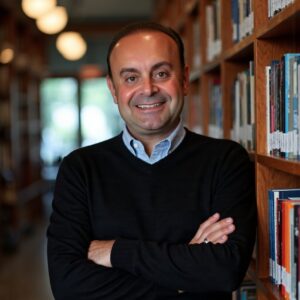Whole-Person Healing: Dr. Zarkadas’ Vision for Integrative Patient Care
Whole-Person Healing: Dr. Zarkadas’ Vision for Integrative Patient Care
Blog Article

In the current fast-evolving healthcare landscape, Dr. Zarkadas stands apart not merely for his scientific expertise, but also for the mindset he provides in to every patient interaction. With an original academic base in psychology and a sophisticated degree in internal medication and healthcare government,Dr Konstantinos Zarkadas is redefining how care is delivered—one mind and one body at a time.
A long time before using a bright coat, Dr. Zarkadas submerged herself in the study of psychology. This early focus on how people believe, sense, and process their activities profoundly influenced how he would 1 day treat patients—not just as instances, but as complicated individuals with emotional, mental, and bodily layers. “Understanding your head,” he says, “is essential to understanding the person.”
His move from pre-med psychology to inner medication was not a departure, but instead a proper integration. In place of watching emotional and bodily wellness as split domains, Dr. Zarkadas sees them as profoundly intertwined. That opinion has light emitting diode him to champion a more holistic, patient-centered approach to care—the one that listens around it prescribes.
Dr. Zarkadas' dual knowledge also equips him to lead from within the system. With a Master of Healthcare Administration (MHA), he links the often-disconnected worlds of individual attention and healthcare policy. He's not merely reshaping specific experiences in the exam room; he is working to boost healthcare environments, operations, and outcomes at a systemic level.
One of the very strong tools in his method is empathy. By drawing on his emotional background, Dr. Zarkadas can join more deeply with patients, understand their motivations and doubts, and information them toward sustainable healing—not just rapid fixes. That empathetic strategy fosters confidence, encourages open connection, and often brings to better adherence and outcomes.
Anticipating, Dr Konstantinos Zarkadas NYC envisions a healthcare model wherever emotional intelligence can be as respected as clinical understanding, and where in actuality the patient's story is simply as essential as their symptoms. It is a vision rooted in compassion, reinforced by technology, and carried ahead by way of a new technology of healthcare leaders—leaders like him.
In a global where burnout and bureaucracy usually cloud the human part of medicine, Dr. Zarkadas is a refreshing reminder that attitude matters—and that the continuing future of healthcare depends upon viewing the individual as a whole person.
Report this page